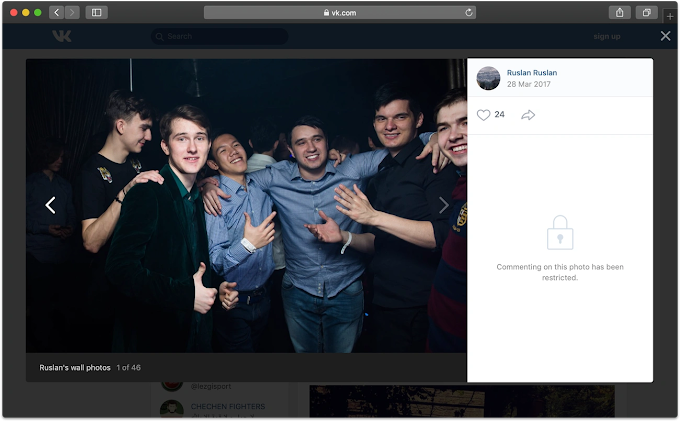CCI Kenya has over 1,400 employees and its clients include T-Mobile and Instacart.
- Over 20 current and former employees of Call Center International Kenya told We they had faced sexual harassment and abuse in the workplace.
- The company is a branch of CCI Global, the largest business process outsourcing organization in Africa.
- CCI Kenya’s clients include T-Mobile, Foxtel, Spirit Airlines, Instacart, MultiChoice, and M-Kopa.
One day in mid-January, Sam Ongara, who worked as an agent for Call Center International Kenya (CCI Kenya) at the time, was abruptly called into a meeting by the company’s human resources team. CCI Kenya is a branch of Africa’s largest business process outsourcing company, CCI Global, which provides call center services to “leading international brands” such as Metro by T-Mobile and Instacart.
Ongara had no idea why he was being called into the meeting, only that the HR officials and his team lead wanted to discuss some issues with him. During the meeting, Ongara claims an HR official grabbed his phone and asked him to unlock it. Once the phone was unlocked, the official opened a WhatsApp group that Ongara had created about a month ago, in which he and some coworkers had discussed concerns about the poor office culture and the company’s failure to act on employees’ complaints.
“The HR … went on my WhatsApp and added the other two [officials who were present in the meeting] as group admins,” Ongara told We. The officials read through the conversations in the group. Then, they deactivated the group and issued him a written warning.
Ongara, who had worked at CCI Kenya for 18 months, said this behavior was hardly shocking to him. He had heard of allegations of harassment, negligence, mistreatment, and exploitation from his colleagues that were much worse.
spoke to over 20 current and former employees of CCI Kenya who highlighted allegations of sexual harassment, intimidation, and exceedingly long work hours. Aside from Ongara, all interviewees spoke under the condition of anonymity, fearing retribution, and have been assigned pseudonyms to make it easier to follow their stories.
Kenya’s growing youth unemployment rate has made business process outsourcing (BPO) — an industry that allows large companies to outsource operations like customer service and human resource management — an attractive option. The country has emerged as a lucrative destination for the call center industry, given its geographical location and availability of cheap labor. CCI is a major player in this industry. In Kenya, it has over 1,400 employees, according to LinkedIn, many of whom work out of its offices in Nairobi. CCI also has offices in Ghana, South Africa, Rwanda, and Ethiopia. Its clients include Foxtel, Spirit Airlines, MultiChoice, and M-Kopa, according to its current and former employees.
We reached out to CCI Kenya’s managing director, chief people officer, and head of operations on LinkedIn with detailed questions about the allegations but did not get a response. Emails to CCI Global and CCI Kenya also went unanswered.
The allegations against CCI Kenya followed reports of poor working conditions in Kenya’s outsourcing sector. Last year, Facebook’s parent company Meta and its former Kenyan content moderation partner Sama were sued over allegations of poor working conditions and unlawful dismissals. The alleged situation at CCI Kenya raises more concerns about the condition of the outsourcing industry in the country.
At least six women who had worked at CCI Kenya between 2020 and January 2023 told We they faced unwanted sexual advances from members in senior management. Three of the six women also said their male supervisors and managers had solicited sexual favors in exchange for rewards.
Emma, an agent at CCI Kenya, recounted that in December 2022, her operations manager approached her in an elevator and asked her out on a date. She declined the proposal. The following day, Emma says the manager called to persuade her and offered to recommend her for a leadership position if she agreed to have a relationship with him, she told We. “I told him I can’t have such a relationship at work, and that is when we became enemies,” Emma said. “From that day, he would shout at me or write me up any slight chance he got and kept changing my shifts to frustrate me.”
“My team manager was very creepy.”
Another employee, Sarah, who worked at the company for about two years, told We she believed she deserved a promotion based on her recent work. She claimed her manager told her that if she really wanted a promotion, she should come to his house. She refused the invitation. “When I told him I won’t go, he straight up told me he will not give me the promotion,” said Sarah. Two other women told we their supervisors made inappropriate sexual advances and told lewd jokes in the workplace. “My team manager was very creepy,” said Grace, who worked at CCI Kenya between 2021 and December 2022 as an agent. “Sometimes, you’d go to him for help when you are stuck, and he’d tell you how he’d want to undress you. Some other time he would just come to your workstation and whisper something sexual to you.”
At least two former female employees said they voiced their concerns to the company’s management, but they felt intimidated by their line managers. “When the complaints started cropping up, the superiors started targeting new employees, calling them ‘fresh bales,’” Ongara claimed.
Kenyan law is clear on how organizations should be structured to protect employees from toxic work environments. According to HR specialist Jane Mutisya, employers must specifically comply with three laws outlined by the country’s Employment Act: equal opportunity employment, prohibition of forced labor, and policies to prevent workplace harassment.
But the enforcement of these laws is a major hurdle, Mutisya told. “The problem sometimes has to do with enforcement of the law or reporting mechanisms,” she said. “You will be surprised that some companies don’t have a policy in place, or in certain cases, it is the head of the organization or the superiors who are supposed to be creating a safe space [who] are the perpetrators.”
Beyond allegations of sexual harassment, CCI Kenya’s employees described generally difficult working conditions.
Two former employees told us they were allegedly denied sick leave, even when they were seriously unwell. Vivian, an agent, said her team lead threatened to dismiss her if she didn’t come in, even though she was sick. “I came in and sat at my desk and did nothing because I was unable to work,” she said. “After a while, I passed out, and my colleagues took me outdoors for some fresh air, and that’s when my supervisor allowed me to go home.”
The hours per week Kenyan labor law states employees may work before being entitled to overtime.
Some employees also said they felt pressured to submit doctors’ notes in person if they wanted to take sick leave. “There was a time I was sick and admitted to the hospital. I contacted my team manager to let him know that I would take the medical sheet later,” said Grace. “He asked me to video-call him or send him a video of myself in the hospital whilst on the drip.”
Five former and current employees reported working shifts that lasted over 12 hours without overtime pay on some occasions between November and January — the peak season for CCI’s clients. Kenyan labor law indicates that any employees who work longer than 45 hours a week are entitled to overtime. Multiple CCI employees reported working for 12–13 hours on some days with no overtime pay granted to them. We reviewed the five employees’ contracts, all of which outlined a mandatory 10-hour shift with a 30-minute lunch break and two additional 15-minute breaks.
Staff members are also expected to be at work 30 minutes before their shift starts to set up their stations, according to Benard, who currently works at CCI Kenya.
“Last year [in] December, during the [peak] season, they overworked us,” Nancy, a former employee, told us. “They had us come to work seven days a week and work for almost 13 hours straight [each day] with minimal breaks, being micromanaged, and any little thing would cause the supervisors to shout at you.”
The company formed an employee council within the past few years to address workplace issues, but that did not help. “I once walked out of the [council’s] meeting because I thought we would be allowed to raise issues about transport, our security, and our salaries,” Daisy, an employee who was part of the council, told us “But it ended up being a PR meeting for the management team, who told us about how the company has created many opportunities for young people.”









0 Comments